News
-
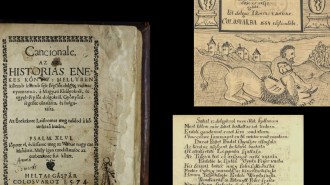 Climate
ClimateHistorical writings reveal how people weathered the Little Ice Age
Records from 500 years ago document floods, famine and death in 16th century Transylvania due to wild weather swings during the Little Ice Age.
By Alex Viveros -
 Climate
ClimateJust a small rise in global temperatures could be deadly
As early as mid-century, an area of land that adds up to the size of the U.S. could hit temperatures hazardous for human health.
By Meghan Rosen -
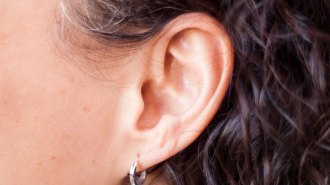 Neuroscience
NeuroscienceWiggling ears may have once helped us hear
These ancient ear muscles may provide a readout of a person's hearing efforts.
-
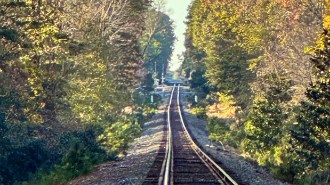 Earth
EarthSpooky floating lights in South Carolina could be earthquake farts
Gases that rise from the earth during earthquakes could explain strange sightings of floating balls of light.
By Nikk Ogasa -
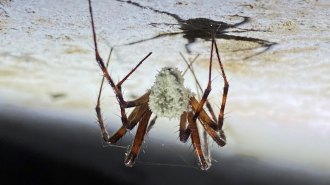 Animals
AnimalsA fungus named after Sir David Attenborough zombifies cave spiders
The new fungus species Gibellula attenboroughii forces reclusive cave spiders to exposed areas, likely to benefit spore dispersal.
-
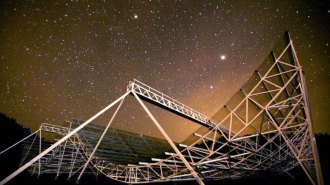 Astronomy
AstronomyA fast radio burst from a dead galaxy puzzles astronomers
A blast of radio waves from the outskirts of an ancient galaxy challenges theories about what creates such bursts.
-
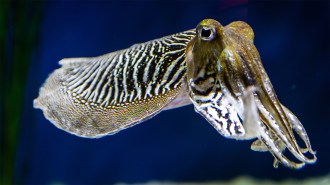 Animals
AnimalsCuttlefish ink may overwhelm sharks’ sense of smell
The main component of common cuttlefish ink — melanin — strongly sticks to shark smell sensors, possibly explaining why the predators avoid ink.
-
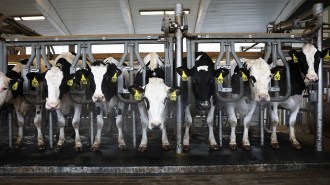 Health & Medicine
Health & MedicineA second version of bird flu is infecting cows. What does that mean?
While the risk to humans of exposure from cows or milk remains low, this new flu spillover from birds into cows raises the need for continued surveillance.
-
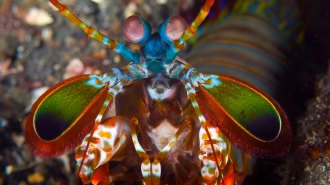 Animals
AnimalsHow mantis shrimp deliver punishing blows without hurting themselves
A mantis shrimp's punch creates high-energy waves. Its exoskeleton is designed to absorb that energy, preventing cracking and tissue damage.
By Jake Buehler -
 Materials Science
Materials ScienceThe best way to cook an egg — in 32 minutes
It’s hard to cook both the white and the yolk of the egg to the right temperature. Scientists have found a new method, called periodic cooking.
-
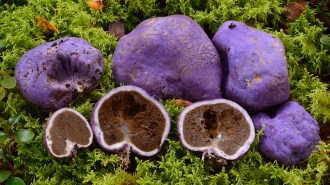 Ecosystems
EcosystemsExtinct moa ate purple trufflelike fungi, fossil bird droppings reveal
DNA analysis reveals the big, flightless moa birds ate — and pooped out — 13 kinds of fungi, including ones crucial for New Zealand’s forest ecosystem.
By Susan Milius -
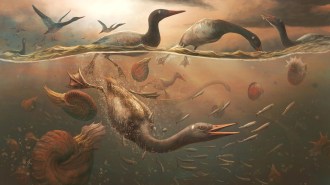 Paleontology
PaleontologyEarth’s first waterfowl may have lived in Antarctica 69 million years ago
A few fossilized body parts hinted at an enigmatic bird's close ties to waterfowl like ducks and geese. A newfound skull may bolster that idea.